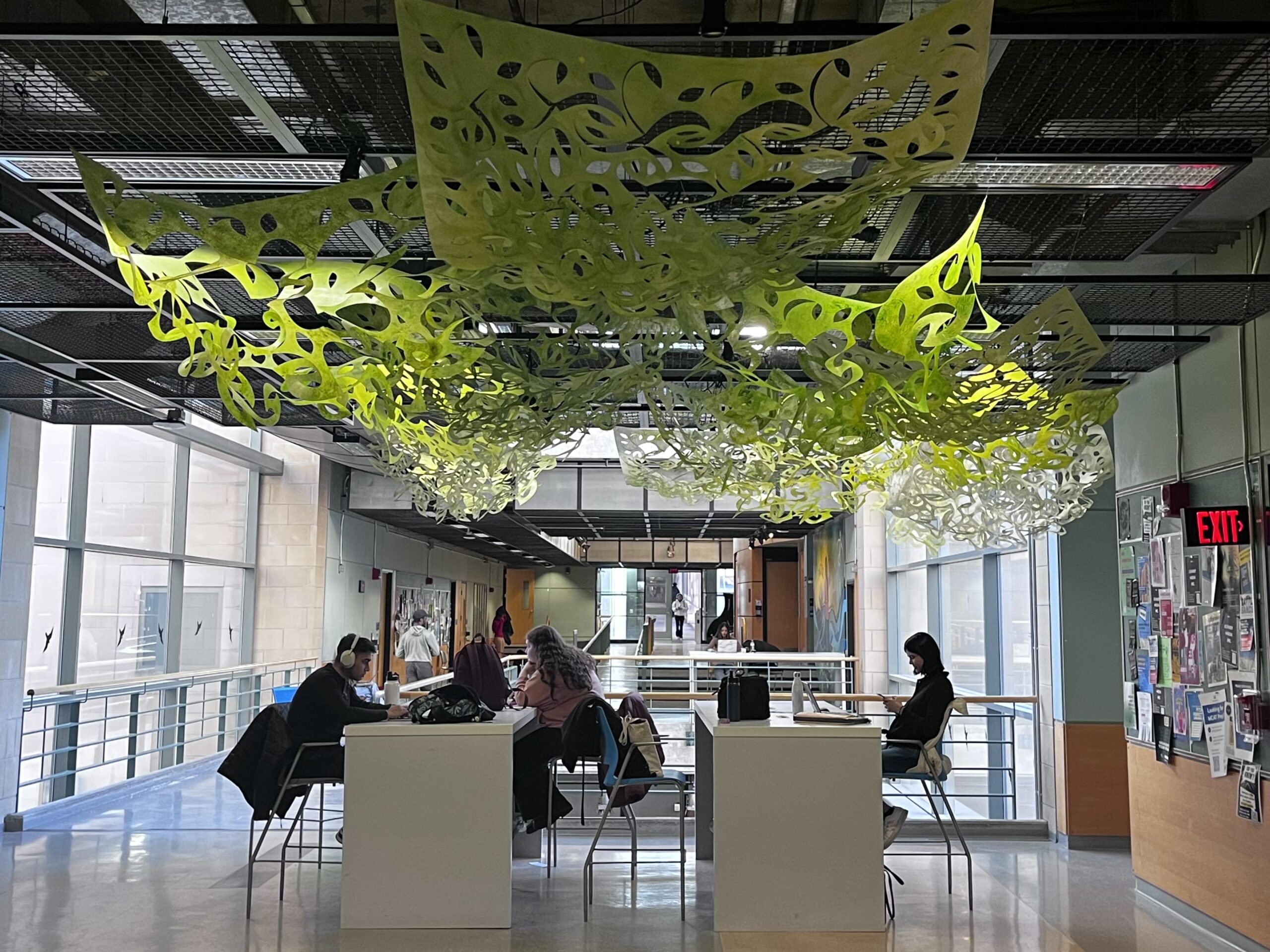
Listen to the whole story here:
Every so often, Valareza Arezehgar, a third-year computer science student at Toronto Metropolitan University (TMU), wakes up and has an internal debate over whether he should make the trek from Richmond Hill to his 8 a.m. lecture on campus.
Attending the early-morning lecture means Arezehgar must get up at 6 a.m. while it’s still dark outside and wishing online classes were back. That longing intensifies when he travels an hour and a half for a two-hour lecture where the professor merely reads off the slides. “I’d rather do that myself,” he said.
Arezehgar is one of the many students struggling to attend in-person classes in a post-pandemic world. In an email response to questions from OTR, experts at the university’s Centre for Excellence in Learning and Teaching (CELT) said some professors have come forward with concerns about fewer students attending in-person classes since the university’s transition from remote learning.
There are intersecting reasons why students aren’t showing up to class, the CELT email said. Faculty surveys found that “A significant majority of students are working in addition to attending school, and they are balancing a significant number of responsibilities outside of school that are influencing their decisions to attend in-person classes.”
The issue is particularly noticeable in lecture courses where the information delivered can be found online or obtained from another student.
A post-pandemic culture shift
Sarah Bull, an assistant professor in TMU’s English department, said she taught 80 students in a course last winter, and by the second half of the semester, about 40 per cent of them weren’t coming in regularly.
“I taught the same course pre-pandemic and it wasn’t the same,” said Bull. “It has been difficult to re-establish a culture where students are expected to come in every week.”
Bull noted the issue is more complex than an unwillingness to attend classes. Socio-economic factors play a key role, she said, pointing to skyrocketing rents that have made living downtown more expensive and have forced more students to commute.
President Mohammed Lachemi said in an emailed response to questions that in-person class attendance remains strong at TMU.
Attendance taking, however, is not standard practice throughout the university. In the English department, for instance, Bull said it’s up to each professor.
Vivitha Shrirajh, who is in her third year of the nursing program, said she often feels unmotivated to attend classes in person due to her long commute from Scarborough and the lack of community on campus.
Despite loving in-person classes, Shrirajh actively chooses as many synchronous classes as possible. “I hate online learning, but the campus is sort of fragmented and it feels unsafe,” she said.
The opposing perspective
In his emailed response, Lachemi urged students to come to class to engage with peers and professors, noting their concerns with being unable to do so during the pandemic.
“Rebuilding campus life is an important part of our return to in-person learning,” he said adding that students who come downtown to TMU can take advantage of library resources and other services including counselling, academic advising and the athletic centres.
Bull said students who don’t attend lectures usually don’t do well in the course. “The exam and assignments tend to be based on lectures and readings,” she said. “If you miss too many, it gets hard to keep up.”
There are students who feel strongly about attending classes in person.
Mature student Aneesha Khosa, who is in her first year in the politics and governance program, said she values in-person class time more after her experience with online learning back when she was in college.
“I find myself focusing more when I’m in person,” she said. “I also feel that I’m getting my money’s worth.”
Third-year computer science student Aleksandr Gyumushyan said attending in-person classes contributes to the university experience outside the classroom. “You get to meet friends, find like-minded people and explore Toronto,” he said.
Chris Harrison, another mature student who is in his first year of journalism, said students may feel there’s no value to class activities that aren’t attached to grades. “Sometimes, we may not realize the importance of what we’re learning at the moment,” he said. “But it’s still important.”
Solutions and potential changes
Bull pointed to possible solutions to the attendance problem. Smaller class sizes, she said, might help students feel more seen.
For her lectures, Bull said she has incorporated more activities and discussions in hopes of engaging students. But cost of living and other socio-economic issues also need to be addressed, she added.
Some TMU schools have mandated attendance for some or all courses. The School of Graphic Communications Management, for instance, has made a participation grade mandatory for lab courses, said Kris Krystosiak, a professor in the school.
The CELT, meanwhile, has also been sharing strategies with programs and instructors to make lectures more engaging.
“Problem-solving, case studies, and opportunities for authentic engagement with both peers and course content can be a strong incentive for students to attend class,” CELT officials said. “It’s worth making a long commute when you know you’ll be engaged in deepening your learning and understanding.”
CELT has also established a Re-Imagining Learning and Teaching (RILT) task force to investigate new ways to deliver courses including “blended courses that split time between on-campus and online learning.”
Lachemi, for his part, said, “We’re witnessing the evolution of educational practices, with in-person classes remaining a central and valued component.”
Fourth-year journalism student seeking a platform to inspire conversations. Reporter, OTR, winter 2024.

